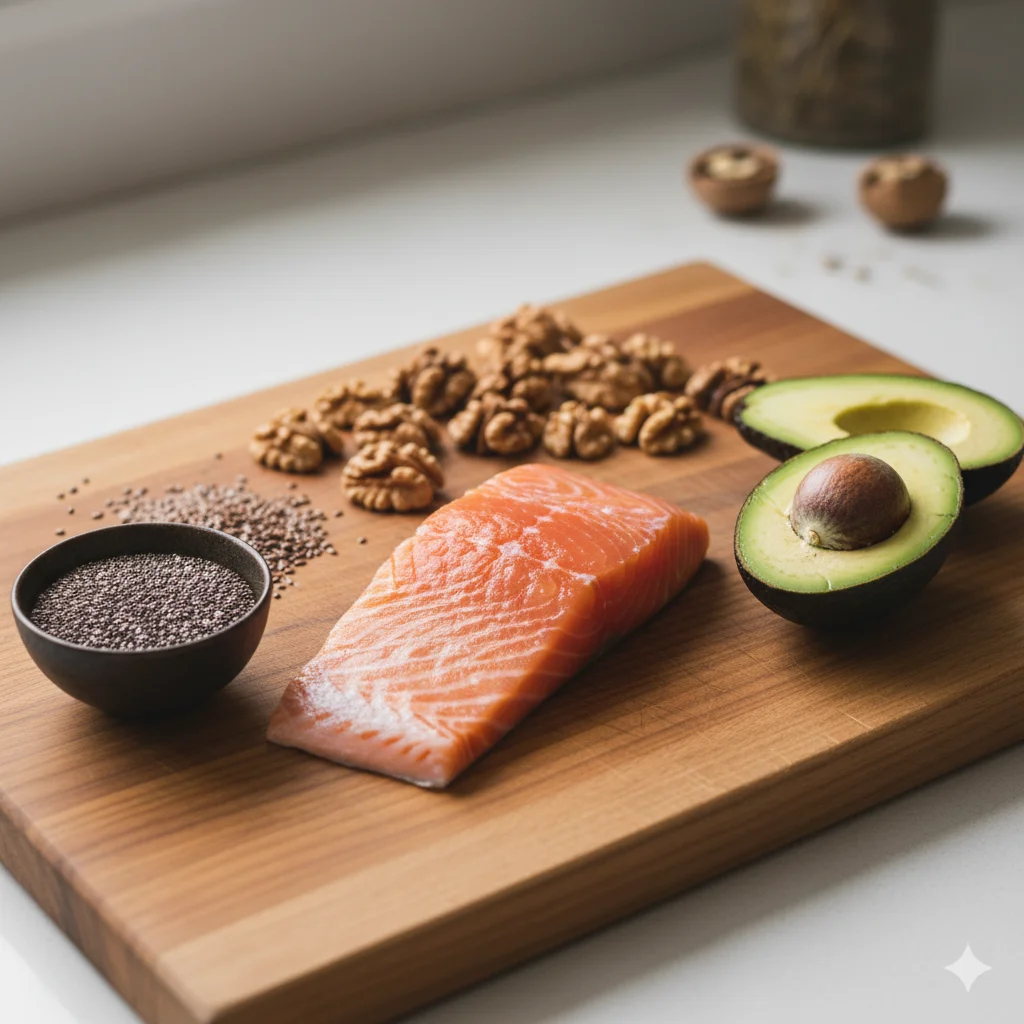Introduction: When Your Brain Feels Like a Foggy Morning
Home remedies for memory and focus have become essential tools for millions of Americans struggling with cognitive challenges in our fast-paced digital world. Sarah stared at her laptop screen for the third time this morning, completely forgetting what she was supposed to research. At 34, she felt like her memory was slipping through her fingers like sand. Between juggling work deadlines, family responsibilities, and endless digital notifications, her brain felt constantly scattered. Sound familiar? Many people search for effective home remedies for memory and focus to address these exact challenges.
You’re not alone. Millions of Americans struggle with memory lapses and focus issues daily. Whether it’s forgetting where you put your keys, losing track mid-conversation, or feeling mentally drained by 2 PM, these cognitive challenges have become the norm rather than the exception. Fortunately, effective home remedies for memory and focus can address these issues naturally.
What are the 7 proven home remedies for stronger memory and focus?
The seven scientifically-backed home remedies for memory and focus include: omega-3 rich foods (fatty fish, walnuts), Brahmi herb supplementation, green tea consumption, daily meditation practice, proper hydration, quality sleep optimization, and regular mental exercises. These natural brain boosters work by improving blood flow, reducing inflammation, and supporting neurotransmitter production for enhanced cognitive health.
But here’s the encouraging news: you don’t need expensive supplements or complicated treatments to sharpen your mind. Your kitchen, garden, and daily habits hold powerful home remedies for memory and focus that can transform your cognitive performance naturally. This article will dive deep into seven scientifically-proven natural solutions that can revolutionize your mental clarity.
We’ll explore the fascinating science behind each remedy, share real-life success stories, and provide practical implementation strategies you can start today. From ancient herbs like Brahmi to modern understanding of omega-3 foods, you’ll discover how simple home remedies for memory and focus can create profound improvements in your mental clarity and concentration.
Ready to reclaim your sharp mind using proven home remedies for memory and focus? Let’s explore these natural brain boosters that have helped thousands of people just like Sarah regain their cognitive edge and achieve lasting mental clarity.
Remedy #1: Omega-3 Rich Foods – The Brain’s Building Blocks
The Problem Story
Mark, a 45-year-old accountant from Denver, noticed his concentration wavering during tax season. Numbers that once came easily now required multiple checks. His wife mentioned he seemed more forgetful, often repeating stories or misplacing important documents. What Mark didn’t realize was that his brain was literally starving for essential fats.
The Science Behind Omega-3s
Your brain is approximately 60% fat, and omega-3 fatty acids make up a crucial portion of this neural tissue. These essential fats, particularly DHA (docosahexaenoic acid) and EPA (eicosapentaenoic acid), serve as building blocks for brain cell membranes and support neurotransmitter production.
Research from Harvard Medical School shows that people with higher omega-3 levels demonstrate better memory performance and larger brain volumes in areas associated with learning and memory. These healthy fats reduce brain inflammation, improve blood flow to neural tissue, and support the growth of new brain cells – a process called neurogenesis.
A 2018 study published in the Journal of Alzheimer’s Disease found that adults who consumed omega-3 rich foods regularly showed 26% better memory recall compared to those with omega-3 deficiencies. The anti-inflammatory properties of these fats also protect against cognitive decline and support focus by stabilizing mood-regulating neurotransmitters.
Practical Home Remedy Implementation
Patricia’s proactive approach showcases how mental exercises represent sustainable home remedies for memory and focus that grow more effective over time. Unlike passive interventions, cognitive training creates lasting improvements through active engagement and progressive challenge.
Michael’s story demonstrates how sleep optimization represents one of the most impactful home remedies for memory and focus, yet it’s frequently undervalued in our productivity-obsessed culture. Quality sleep provides the foundation upon which all other cognitive enhancement strategies build.
Rachel’s experience highlights how simple home remedies for memory and focus are often overlooked in our complex modern world. Proper hydration represents the most fundamental cognitive support strategy that anyone can implement immediately.
David’s transformation illustrates how meditation serves as one of the most powerful home remedies for memory and focus available to anyone, anywhere. Unlike other interventions, meditation requires no special equipment or ingredients – just consistent practice and proper technique.
Jennifer’s success with green tea demonstrates how accessible home remedies for memory and focus can be found in your local grocery store. The key lies in understanding proper preparation and timing for maximum cognitive benefits.
Lisa learned that effective home remedies for memory and focus often come from traditional medicine systems that have been refined over thousands of years. Brahmi represents one of the most researched botanical solutions for cognitive enhancement.
Mark discovered that incorporating omega-3 home remedies for memory and focus into his daily routine required simple adjustments rather than major lifestyle overhauls. These natural solutions became the foundation of his cognitive enhancement strategy.
Daily Omega-3 Protocol:
- Morning: Add 1 tablespoon of ground flaxseeds to your breakfast cereal or smoothie
- Lunch: Include 1/4 cup of walnuts as a snack or salad topping
- Dinner: Consume fatty fish (salmon, mackerel, sardines) 2-3 times weekly
Brain-Boosting Omega-3 Smoothie Recipe:
- 1 cup unsweetened almond milk
- 1/2 avocado
- 1 tablespoon chia seeds
- 1/2 cup blueberries
- 1 tablespoon almond butter
- Ice cubes
Blend until smooth and consume within 30 minutes for maximum nutrient absorption.
Key Takeaways:
- Omega-3 foods directly support brain structure and neurotransmitter function
- Aim for 1-2 grams of combined EPA and DHA daily through whole food sources
- Consistency matters more than quantity – small daily amounts create lasting benefits
Remedy #2: Brahmi Herb – The Ancient Memory Enhancer
The Problem Story
Lisa, a graduate student from Austin, found herself struggling to retain information during her master’s program. Despite hours of studying, important concepts seemed to slip away during exams. Traditional study methods weren’t working, and she was considering dropping out. Then her Indian roommate introduced her to an ancient herb that changed everything.
The Science Behind Brahmi
Brahmi (Bacopa monnieri) has been used in Ayurvedic medicine for over 3,000 years as a brain tonic. Modern research validates this ancient wisdom, showing that Brahmi contains powerful compounds called bacosides that cross the blood-brain barrier and directly enhance cognitive function.
A landmark 12-week study published in Psychopharmacology involved 136 adults who took standardized Brahmi extract. Participants showed significant improvements in memory acquisition, retention, and recall compared to the placebo group. The herb works by increasing protein synthesis in brain regions associated with long-term memory formation.
Brahmi also reduces cortisol levels – your body’s primary stress hormone that impairs memory when chronically elevated. By modulating stress response, this adaptogenic herb creates an optimal internal environment for learning and focus. Additional benefits include increased antioxidant activity in the brain and improved communication between neurons.

Practical Home Remedy Implementation
Brahmi Preparation Methods:
Option 1 – Fresh Brahmi Juice:
- Blend 10-15 fresh Brahmi leaves with 1/2 cup water
- Strain and consume on empty stomach each morning
- Start with 1 teaspoon and gradually increase to 2 tablespoons
Option 2 – Brahmi Tea:
- Steep 1 teaspoon dried Brahmi powder in hot water for 10 minutes
- Add honey and lemon to taste
- Consume 30 minutes before studying or demanding mental tasks
Option 3 – Brahmi Powder Smoothie:
- Mix 1/4 teaspoon Brahmi powder into your morning smoothie
- Combine with banana and milk for better taste and absorption
Timing and Dosage:
- Take consistently for 8-12 weeks to experience full benefits
- Consume on empty stomach for better absorption
- Cycle usage: 3 months on, 1 month off
Key Takeaways:
- Brahmi requires consistent use over 8-12 weeks for noticeable memory improvements
- Start with small doses to assess individual tolerance
- Combine with other brain-supporting nutrients for synergistic effects
Remedy #3: Green Tea – The Focus Enhancer
The Problem Story
Jennifer, a marketing manager from Seattle, experienced the dreaded 3 PM energy crash daily. Her afternoon focus would plummet, making it impossible to complete important projects. Coffee left her jittery, and energy drinks caused crashes. She needed a sustainable solution that would provide steady mental energy without the side effects.
The Science Behind Green Tea
Green tea contains a unique combination of caffeine and L-theanine – an amino acid that promotes calm alertness. This powerful duo creates what researchers call “relaxed focus,” providing mental energy without anxiety or crashes.
L-theanine increases alpha brain wave activity, associated with relaxed attention and creative thinking. When combined with caffeine, it enhances cognitive performance while reducing caffeine’s typical side effects like jitters and anxiety. Studies show this combination improves attention span by up to 40% and enhances working memory capacity.
Green tea also contains EGCG (epigallocatechin gallate), a potent antioxidant that protects brain cells from oxidative stress and inflammation. Research published in the American Journal of Clinical Nutrition found that regular green tea consumption correlates with better cognitive function and reduced risk of cognitive decline.
The polyphenols in green tea support BDNF (brain-derived neurotrophic factor) production – a protein that promotes brain cell growth and protects existing neurons. This creates long-term cognitive benefits beyond immediate focus enhancement.
Practical Home Remedy Implementation
Optimal Green Tea Protocol:
Morning Focus Blend:
- Brew 1 cup high-quality green tea (sencha or matcha) at 175°F
- Steep for 3-4 minutes to maximize L-theanine extraction
- Consume 30-45 minutes after breakfast for sustained energy
Afternoon Concentration Booster:
- Prepare iced green tea with fresh mint and lemon
- Drink slowly over 30 minutes to maintain steady caffeine levels
- Avoid consumption after 4 PM to prevent sleep disruption
Brain-Boosting Matcha Latte:
- Whisk 1 teaspoon matcha powder with 2 tablespoons warm water
- Add 3/4 cup warm almond milk and 1 teaspoon honey
- Consume before mentally demanding tasks
Daily Routine:
- 2-3 cups spread throughout the day
- Choose organic, high-quality loose leaf varieties
- Rotate between green tea types to prevent tolerance
Key Takeaways:
- Green tea provides sustained focus without energy crashes
- L-theanine and caffeine work synergistically for optimal cognitive benefits
- Quality and preparation method significantly impact effectiveness
Remedy #4: Meditation – The Mind Training Practice
The Problem Story
David, a software developer from Chicago, found his mind constantly racing between coding problems, deadlines, and personal worries. His ability to concentrate deeply on complex projects had deteriorated, forcing him to work longer hours with diminishing returns. Traditional time management strategies weren’t addressing the root issue – his scattered, unfocused mind.
The Science Behind Meditation
Meditation literally rewires your brain for better attention and memory. Neuroimaging studies show that regular meditation practice increases gray matter density in the hippocampus (memory center) and prefrontal cortex (executive function area) while reducing activity in the default mode network – the brain’s “wandering mind” system.
A Harvard study led by Dr. Sara Lazar found that just eight weeks of mindfulness meditation increased cortical thickness in areas associated with attention and memory. Participants showed measurable improvements in working memory capacity and sustained attention abilities.
Meditation reduces cortisol production, lowering chronic stress that impairs cognitive function. It also increases GABA neurotransmitter activity, promoting calm focus, and boosts dopamine levels, enhancing motivation and concentration. These neurochemical changes create an optimal brain state for learning and memory consolidation.
Research published in Psychological Science demonstrated that brief meditation training improved GRE reading comprehension scores by an average of 16 percentile points, showing direct academic and professional benefits.
Practical Home Remedy Implementation
Beginner’s Meditation Protocol:
Week 1-2: Foundation Building
- 5 minutes daily focused breathing
- Sit comfortably, focus on breath sensations
- When mind wanders, gently return attention to breathing
- Use guided apps like Headspace or Calm initially
Week 3-4: Expanding Awareness
- Increase to 10 minutes daily
- Practice body scan meditation
- Notice physical sensations without judgment
- Develop concentration stability
Week 5-8: Advanced Practice
- 15-20 minutes daily
- Incorporate mindfulness into daily activities
- Practice loving-kindness meditation for emotional regulation
- Establish consistent morning routine
Focus-Specific Meditation Technique:
- Sit quietly and choose a single point of focus (breath, mantra, or visual object)
- When attention drifts, acknowledge the distraction without judgment
- Gently redirect focus back to your chosen anchor
- Practice this “mental pushup” repeatedly to strengthen concentration
Micro-Meditation for Busy Schedules:
- 2-minute breathing breaks between meetings
- Mindful eating during lunch
- Walking meditation during commutes
- Evening gratitude reflection
Key Takeaways:
- Consistency matters more than duration – daily practice creates lasting changes
- Meditation directly strengthens attention and working memory capacity
- Benefits accumulate over time, with noticeable improvements in 4-8 weeks

Remedy #5: Proper Hydration – The Overlooked Brain Booster
The Problem Story
Rachel, a teacher from Phoenix, noticed her afternoon classes becoming increasingly difficult to manage. Her thinking felt sluggish, her patience wore thin, and remembering lesson plans required constant notes. She blamed stress and workload until a colleague pointed out something simple – Rachel barely drank water during her busy teaching days.
The Science Behind Hydration and Brain Function
Your brain is approximately 73% water, making hydration critical for optimal cognitive performance. Even mild dehydration – as little as 2% fluid loss – significantly impairs memory, attention, and decision-making abilities.
Research from the University of Connecticut found that mild dehydration negatively affects working memory, increases perception of task difficulty, and reduces ability to concentrate. The brain’s gray matter actually shrinks when dehydrated, requiring more energy to perform the same cognitive tasks.
Water facilitates neurotransmitter production and transport, enables efficient waste removal from brain cells, and maintains optimal blood flow to neural tissue. Dehydration increases cortisol production, creating a stress response that further impairs memory and focus.
If you want to increase hemoglobin naturally, this guide is for you. No pills. No injections. Just real food, smart habits,
A study published in the Journal of Nutrition demonstrated that proper hydration improved cognitive flexibility by 12% and reduced response time in attention-based tasks. Well-hydrated individuals also showed better mood regulation and reduced mental fatigue.
Practical Home Remedy Implementation
Optimal Brain Hydration Strategy:
Morning Hydration Kickstart:
- Drink 16-20 oz of water immediately upon waking
- Add lemon and a pinch of sea salt for electrolyte balance
- This replenishes overnight fluid losses and jumpstarts metabolism
Throughout the Day:
- Aim for half your body weight in ounces daily (150 lb person = 75 oz)
- Drink 6-8 oz every hour during waking hours
- Use a marked water bottle to track intake visually
Pre-Mental Task Protocol:
- Consume 8 oz of water 30 minutes before important meetings or study sessions
- Maintain small sips during cognitively demanding activities
- Avoid large amounts during focused work to prevent bathroom interruptions
Brain-Boosting Hydration Recipes:
Cognitive Enhancement Water:
- 32 oz filtered water
- 1/4 teaspoon pink Himalayan salt
- 2 tablespoons fresh lemon juice
- 1 teaspoon raw honey
Herbal Focus Blend:
- Green tea (cooled) with fresh mint
- Add cucumber slices and ice
- Provides hydration plus cognitive benefits
Signs of Optimal Hydration:
- Pale yellow urine
- Sustained energy levels
- Clear thinking throughout the day
- Minimal afternoon fatigue
Key Takeaways:
- Even mild dehydration significantly impairs cognitive performance
- Consistent water intake throughout the day prevents mental fatigue
- Quality matters – filtered water with natural electrolytes optimizes brain function
Remedy #6: Quality Sleep Optimization – The Memory Consolidator
The Problem Story
Michael, an entrepreneur from Miami, prided himself on working 18-hour days and sleeping only 4-5 hours nightly. He viewed sleep as lost productivity time. However, his decision-making suffered, his memory for important details declined, and his creative problem-solving abilities diminished. Success required a fundamental shift in his relationship with sleep.
The Science Behind Sleep and Cognitive Function
Sleep serves as your brain’s maintenance period, when memories are consolidated, toxins are cleared, and neural connections are strengthened. During deep sleep, your brain transfers information from temporary storage (hippocampus) to permanent storage (neocortex), creating lasting memories.
The glymphatic system – your brain’s waste clearance mechanism – operates primarily during sleep, removing harmful proteins like beta-amyloid that impair cognitive function when accumulated. Research shows that even one night of sleep deprivation reduces memory consolidation by up to 40%.
REM sleep, in particular, supports creative problem-solving and emotional memory processing. Studies demonstrate that people who get quality REM sleep show 33% better performance on creative insight problems compared to those with disrupted sleep patterns.
Sleep also regulates neurotransmitter production, including dopamine (motivation), serotonin (mood), and acetylcholine (attention and learning). Chronic sleep deprivation creates a cascade of cognitive impairments that no amount of caffeine can fully compensate for.
Practical Home Remedy Implementation
Sleep Optimization Protocol:
Evening Routine (2 hours before bed):
- Dim all lights to support melatonin production
- Avoid screens or use blue light blocking glasses
- Practice relaxation techniques (gentle stretching, reading, meditation)
- Keep bedroom temperature between 65-68°F
Natural Sleep Aids:
- Chamomile tea 30 minutes before bed
- 1-3 mg melatonin supplement (consult healthcare provider first)
- Magnesium glycinate (200-400mg) for muscle relaxation and deeper sleep
Sleep Environment Optimization:
- Blackout curtains or eye mask for complete darkness
- White noise machine or earplugs for sound control
- Comfortable, supportive mattress and pillows
- Remove electronic devices from bedroom
Morning Light Exposure:
- Get 15-30 minutes of sunlight within first hour of waking
- This regulates circadian rhythm and improves nighttime sleep quality
- Use a light therapy box during winter months
Weekend Sleep Strategy:
- Maintain consistent sleep schedule even on weekends
- Avoid “sleeping in” more than 1 hour past normal wake time
- This prevents Monday morning sleep deprivation
Sleep Quality Assessment:
- Track sleep duration and quality using apps or wearable devices
- Note correlations between sleep and cognitive performance
- Aim for 7-9 hours of quality sleep nightly
Key Takeaways:
- Sleep is when memory consolidation and brain detoxification occur
- Consistency in sleep schedule is more important than total hours
- Quality sleep environment and evening routine dramatically improve cognitive recovery
Remedy #7: Mental Exercises – The Cognitive Workout
The Problem Story
Patricia, a 58-year-old librarian from Portland, worried about her increasing forgetfulness and slower processing speed. Family history of cognitive decline motivated her to take proactive steps. Rather than accepting mental decline as inevitable, she decided to treat her brain like a muscle that needed regular exercise to stay strong.
The Science Behind Mental Exercise
Neuroplasticity – your brain’s ability to form new neural connections – continues throughout life when properly stimulated. Mental exercises create cognitive reserve, building resilience against age-related decline and enhancing overall brain function.
Research from the University of Michigan found that working memory training improved fluid intelligence – your ability to solve novel problems and adapt to new situations. Participants who engaged in challenging mental exercises showed increased activity in brain regions associated with executive function.
The key is progressive difficulty – constantly challenging your brain with new, complex tasks. This stimulates BDNF production, promotes neurogenesis, and strengthens existing neural pathways. Studies show that people who regularly engage in mentally stimulating activities have 63% lower risk of developing dementia.
Home remedies for better digestion have transformed the lives of millions of Americans who struggle with daily digestive discomfort.
Cross-training different cognitive domains (memory, attention, processing speed, problem-solving) creates the most comprehensive benefits. Just as physical exercise targets different muscle groups, mental exercise should challenge various cognitive abilities.
Practical Home Remedy Implementation
Comprehensive Brain Training Program:
Week 1-2: Foundation Building
- Daily crossword puzzles or word games (15 minutes)
- Number sequences and basic math problems
- Memory games using playing cards
- Practice recalling grocery lists without writing
Week 3-4: Intermediate Challenges
- Learn new vocabulary words daily
- Practice mental math calculations
- Play strategic games like chess or bridge
- Memorize poetry or song lyrics
Week 5-8: Advanced Cognitive Training
- Learn a new skill (musical instrument, foreign language, coding)
- Practice dual n-back training for working memory
- Engage in complex puzzle solving (sudoku, logic puzzles)
- Write detailed journal entries to improve narrative memory
Daily Mental Exercise Routine:
Morning (10 minutes):
- Number sequence games
- Mental arithmetic challenges
- Word association exercises
Afternoon (15 minutes):
- Reading complex material with comprehension questions
- Playing strategic mobile games
- Practicing new vocabulary
Evening (10 minutes):
- Reviewing and recalling day’s events in detail
- Planning tomorrow’s activities mentally
- Gratitude practice with specific memory recall
Technology-Free Mental Exercises:
- Cooking new recipes without constantly checking instructions
- Giving directions without GPS assistance
- Engaging in deep conversations on complex topics
- Playing memory games with family members
Progress Tracking:
- Keep a brain training journal
- Note improvements in daily cognitive tasks
- Set progressive difficulty goals
- Celebrate small victories and breakthroughs
Key Takeaways:
- Progressive difficulty is essential for continued cognitive improvement
- Cross-training different mental skills creates comprehensive brain fitness
- Consistency and variety prevent mental plateaus and maintain engagement

❓ Frequently Asked Questions: Natural Brain Boosters
Q: What foods are best for memory and concentration?
The most effective brain-boosting foods include:
- Fatty fish: Salmon, mackerel, sardines – rich in omega-3 fatty acids (DHA/EPA) that build brain cell membranes
- Berries: Blueberries, blackberries – packed with antioxidants that protect against oxidative stress
- Nuts & seeds: Walnuts, flaxseeds, chia seeds – provide omega-3s, fiber, and vitamin E
- Leafy greens: Spinach, kale – high in folate, vitamin K, and lutein for cognitive support
- Whole grains: Oats, brown rice – deliver steady glucose, the brain’s primary fuel
- Eggs: Rich in choline, a precursor to acetylcholine (a key neurotransmitter for memory)
- Dark chocolate (70%+ cocoa): Contains flavonoids that improve blood flow to the brain
✅ The key is dietary diversity — no single “superfood” works alone. A balanced, nutrient-dense diet supports long-term brain health better than isolated supplements.
Q: Is green tea really good for focus?
Yes! Green tea is scientifically proven to enhance focus through its unique combination of:
- Caffeine (~30mg per cup): Improves alertness and reaction time
- L-theanine: An amino acid that promotes alpha brain waves, linked to relaxed attention
Together, they create “calm alertness” — sustained mental energy without jitters or crashes. Studies show this duo improves attention span by up to 40% and enhances working memory.
💡 Effects last 4–6 hours, making it ideal for prolonged tasks. For best results:
- Drink 2–3 cups daily
- Choose high-quality loose-leaf or matcha
- Avoid after 4 PM to prevent sleep disruption
A smarter alternative to coffee for steady, jitter-free concentration.
Q: How does meditation improve memory?
Meditation enhances memory through measurable neurological changes:
- 🧠 Increases gray matter in the hippocampus (memory center) and prefrontal cortex (executive function)
- ⬇️ Reduces cortisol, the stress hormone that impairs memory when chronically elevated
- 🔝 Boosts BDNF (Brain-Derived Neurotrophic Factor), supporting new neuron growth
- 🔄 Strengthens neural connections and improves working memory capacity
Harvard research shows just 8 weeks of mindfulness meditation leads to structural brain changes linked to better attention and recall.
Additionally, meditation reduces activity in the default mode network — the brain’s “wandering mind” system — allowing for improved focus and information encoding.
Even 5–10 minutes daily can produce noticeable improvements in memory and concentration within 4–6 weeks.
Q: Can omega-3 supplements help memory in older adults?
Yes — research strongly supports omega-3 supplementation for memory in older adults, especially those with mild cognitive decline.
Key findings:
- DHA (docosahexaenoic acid), the main omega-3 in brain tissue, declines with age
- Adults taking 1–2 grams daily of combined EPA/DHA show:
- Improved memory recall
- Better cognitive flexibility
- Slower rate of cognitive decline
Omega-3s reduce chronic inflammation, a major driver of brain aging. They also support synaptic function and cerebral blood flow.
While whole food sources (like fatty fish and walnuts) may offer synergistic benefits due to co-nutrients, supplements are effective — particularly for those who don’t eat fish regularly.
✅ Best practice: Combine omega-3s with quality sleep, exercise, and mental stimulation for maximum impact.
⚠️ Always consult a healthcare provider before starting, especially if on blood thinners or managing chronic conditions.
Q: Are herbal remedies like Brahmi safe?
Brahmi (Bacopa monnieri) is generally safe for most adults when used appropriately, backed by over 3,000 years of Ayurvedic use and modern clinical studies.
✅ Benefits:
- Enhances memory acquisition, retention, and recall
- Reduces anxiety and cortisol levels
- Supports antioxidant defense in the brain
⚠️ Safety Notes:
- Common side effects (usually mild): Stomach upset, nausea, fatigue — typically resolve within days
- Not recommended during pregnancy or breastfeeding due to limited safety data
- May interact with thyroid medications, sedatives, or antidepressants
- Quality varies — choose standardized extracts from reputable brands to avoid contaminants
💡 Dosage Tips:
- Most studies use 300–600 mg/day of extract with 20–50% bacosides
- Start low, increase gradually
- Allow 8–12 weeks for full cognitive benefits
✅ Always consult your doctor before starting any herbal remedy — especially if you have underlying health conditions or take prescription medications.
Conclusion: Building Your Sharper Mind, One Day at a Time
Your journey to stronger memory and focus doesn’t require expensive treatments or complicated protocols. These seven proven home remedies for memory and focus offer natural, accessible pathways to cognitive enhancement that anyone can implement starting today:
- Omega-3 Rich Foods – Build stronger neural connections through brain-healthy fats
- Brahmi Herb – Harness ancient wisdom backed by modern research for memory enhancement
- Green Tea – Achieve calm, sustained focus through L-theanine and caffeine synergy
- Meditation Practice – Train your attention and literally rewire your brain for better concentration
- Proper Hydration – Support optimal brain function through consistent, quality fluid intake
- Sleep Optimization – Allow memory consolidation and brain detoxification during quality rest
- Mental Exercises – Challenge your cognitive abilities to build lasting brain fitness
Remember Sarah from our introduction? After implementing these natural home remedies for memory and focus consistently for three months, she reported remarkable improvements. Her afternoon brain fog disappeared, her memory for details sharpened, and her ability to focus during important tasks increased dramatically. Most importantly, these changes became her new normal, not temporary fixes.
The key insight driving all successful cognitive enhancement is this: A sharp memory and strong focus are built daily, not instantly. Your brain responds to consistent, positive inputs over time. Small daily actions – drinking enough water, taking meditation breaks, choosing brain-healthy foods, prioritizing sleep – compound into significant cognitive improvements.
Start with one or two remedies that resonate most with your lifestyle and current challenges. Master these practices before adding others. Consistency in a few areas beats sporadic implementation of everything. Your brain craves routine and responds best to gradual, sustainable changes.
These home remedies for memory and focus represent more than quick fixes – they’re investments in your long-term cognitive health and life quality. Every healthy choice you make today builds the sharp, focused mind you’ll enjoy for decades to come using these proven natural strategies.
Take Action Today: Share this article with someone who could benefit from better memory and focus. Leave a comment below sharing which remedy you’re most excited to try. Subscribe to our newsletter for more evidence-based wellness strategies that transform your health naturally.
Your sharpest mind is waiting – start building it today!






Leave a Reply